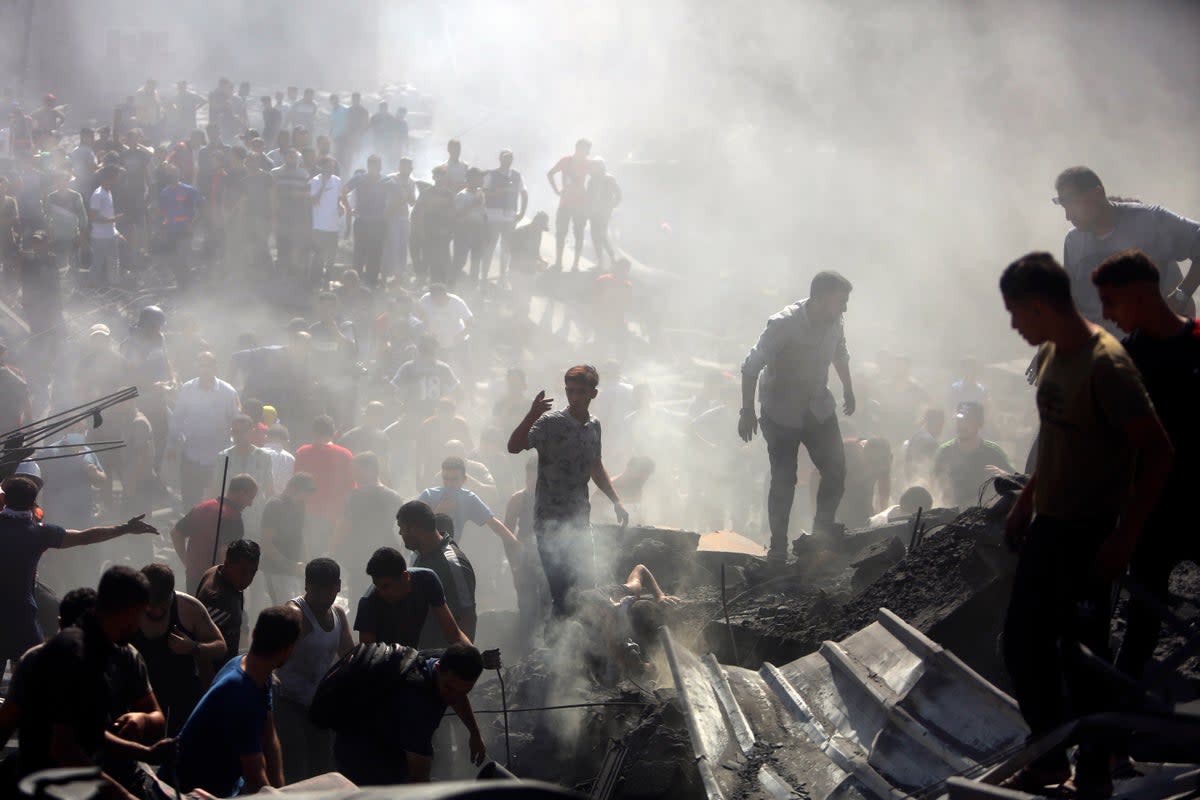Voices: Will US airstrikes in Syria trigger a wider conflict?

- Oops!Something went wrong.Please try again later.
- Oops!Something went wrong.Please try again later.
Ever since this latest – and most deadly – Gaza War began with the massacre by Hamas, there has been deep apprehension that other countries will be drawn in with lethal repercussions.
We can now see the beginnings of that scenario, with the US carrying out airstrikes in Syria. The targets were weapons and ammunition storage facilities used by Iran-trained and supplied militias, and Iran’s Revolutionary Guard Corps (IRGC).
The attacks were in response to American bases in Iraq and Syria being hit by a series of low-level attacks by drones and rockets over the past 10 days, after Israel began the pulverising bombing of Gaza which has cost, according to Palestinian authorities, over 7,000 lives so far.
Iranian backed militias have claimed credit for the attacks which led to 24 American service personnel being injured, with a civilian contractor to the military also being killed. There were three attacks on Thursday, striking two US bases in Syria and one in western Iraq.
The US defence secretary, Lloyd Austin, said that President Joe Biden had ordered the “self-defence strikes” to send the clear message that “the United States will not tolerate such attacks and will defend itself, its personnel, and its interests”.
Austin, a former US army four star general, said that no coordination had taken place with Israel over the American action, adding “we continue to urge all state and non-state entities not to take action that would escalate into a broader regional conflict”.
However, adversaries – including Iran and its allies – will undoubtedly present the air strikes as escalatory and further evidence of Washington using its forces in aid of Israel. Washington has already been militarily active in this conflict, with a US warship intercepting missiles fired towards Israel by Iranian backed Houthi rebels.
It is not known if any Iranians were killed in the US attacks. Iran’s foreign minister, Hossein Amir-Abdollahian, said at the UN on Thursday that if Israel’s offensive attacks on Gaza did not stop, the US would “not be spared from this fire”. This was followed by Biden taking the unusual step of sending a personal message to Iran’s supreme leader, Ayatollah Ali Khamenei, warning there would be swift retaliation if American personnel continue to be targeted by Tehran backed militias.
The US has positioned a formidable military force into the region, sending not just one, but two aircraft carrier strike groups to the eastern Mediterranean. The aim, said the Pentagon, was to signal Hezbollah in Lebanon, a long-standing Iranian ally, “not to be on the terrible bandwagon” with Hamas in attacking Israel.
There has been exchange of artillery fire across the Lebanese border between Hezbollah and the Israelis who have cleared a swathe of settlements in the area. The Lebanese militia have an arsenal of around 150,000 rockets and missiles. To put that in context, the number fired from Gaza so far is around 8,000. Israeli officials acknowledge that the militia would be capable of inflicting severe damage to infrastructure and residential communities if it enters the fray.
Yet at the same time Washington is trying to persuade Benjamin Netanyahu’s Israeli government against launching a full-scale ground invasion which will lead to thousands more civilian casualties. Austin has explained to his Israeli counterpart, Yoav Gallant, the huge difficulties of urban combat in a densely populated area. He has also stressed the need to minimise civilian collateral damage when the mission takes place.
It remains to be seen whether this American balancing act – of asking Israel for restraint, and carrying out military strikes on militias which may seek to join the fight on behalf of Hamas – will prevent this conflict from getting out of control. The situation in the region continues to be volatile and highly dangerous.

